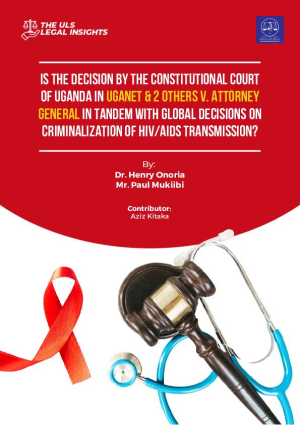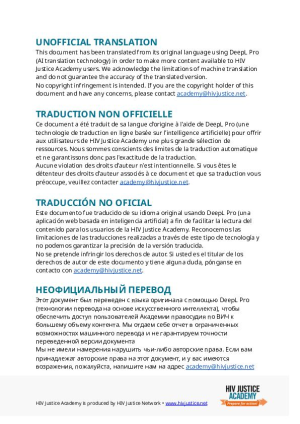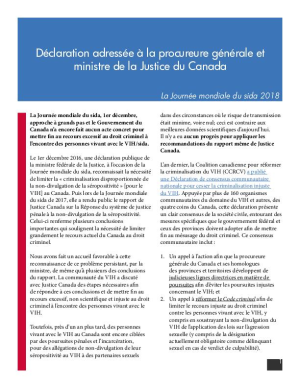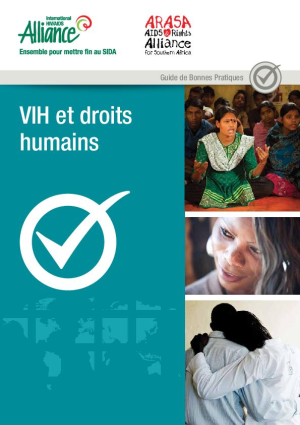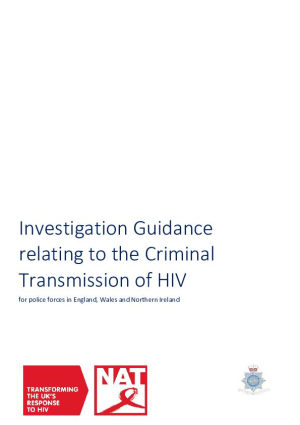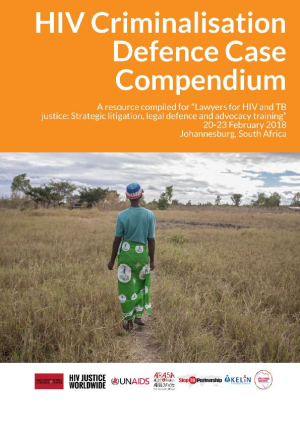Breastfeeding and HIV: An example of what stigma, discrimination and lack of information can cause.
This video reflects the story of a woman from Argentina who was prosecuted for wanting to breastfeed her baby and in the success of the defense of her rights with the accompaniment of ICW Argentina so that she could comply with the reproductive right of breastfeeding.
People Living with HIV in support of (S. 53(2)) MARRIAGE BILL 2019 IN ZIMBABWE
In this brochure, Zimbabwe Lawyers for Human Rights and HIV Justice Worldwide explain why the section 79 of the Criminal Code violates the rights of people living with HIV and is a barrier to HIV prevention and care.
Is the decision by the constitutional court of Uganda in UGANET & 2 others v. Attorney General in tandem with global decisions on criminalization of HIV/AIDS transmission?
On 8th November 2022 the Constitutional Court of Uganda handed down a decision that has been perceived as contrary to addressing inequalities and helping to end AIDS, as the provisions of the HIV and AIDS Prevention and Control Act, 2015 that were being challenged in the petition, perceived as discriminatory, criminalising HIV/AIDS transmission, among others, were maintained by the Court as being constitutional. ULS LEGAL INSIGHT analyses this petition and its implications on the global approaches to fight against criminalisation of HIV/AIDS transmission.
Cour suprême, deuxième chambre pénale, arrêt 690/2019 du 11 mars. 2020, Rec. 1807/2018
INJURIES. Transmission du VIH dans les cas où la personne infectée connaissait la maladie de son partenaire. La plaignante savait que son partenaire était porteur du VIH, donc ayant accepté d'avoir des relations sexuelles avec lui, sans aucune sorte de prophylaxie, la transmission de la maladie n'est pas digne d'un reproche pénal. Preuve extérieure de la maladie que la plaignante a dû percevoir, puisqu'elle a elle-même été diagnostiquée des mois plus tard, et que ni après ce diagnostic, ni lorsqu'elle a signalé la prétendue agression, elle n'a fait la moindre allusion à la contagion de la maladie. In dubio pro reo. Mise en danger de la plaignante elle-même.
La Cour suprême a rejeté le pourvoi en cassation formé contre la sentence de l'Audience provinciale de Madrid et a confirmé la condamnation pour le délit de lésions aggravées dues à l'infection par le VIH.
Ce document a été traduit de sa langue d'origine à l'aide de DeepL Pro (une technologie de traduction en ligne basée sur l’intelligence artificielle) pour offrir aux utilisateurs de HIV Justice Academy une plus grande sélection de ressources. Nous sommes conscients des limites de la traduction automatique et ne garantissons donc pas l'exactitude de la traduction.
Déclaration adressée à la procureure générale et ministre de la Justice du Canada
Déclaration de la Coalition canadienne pour réformer la criminalisation du VIH appelant à l'adoption de mesures spécifiques par le gouvernement fédéral et ceux des provinces afin de mettre fin au mésusage du droit criminel, dont le développement de lignes directrices en matière de poursuites et une réforme du code pénal.
Guide de bonnes pratiques: VIH et droits humains
Le Guide de bonnes pratiques : VIH et droits humains est un guide accessible visant à expliquer ce qu’est la programmation du VIH fondée sur les droits humains ; les raisons en justifiant son importance ; les diverses façons dont les organisations peuvent intégrer les droits humains dans leurs programmes de VIH avec exemples pratiques et apercu de la manière dont ces programmes suscitent un changement à différents niveaux.
Investigation Guidance relating to the Criminal Transmission of HIV for police forces in England, Wales and Northern Ireland
Sets out how prosecutors should deal with cases where there is an allegation that the suspect/defendant has passed an infection to the complainant during the course of consensual sexual activity. States the criminality of this offending lies in the mens rea, so relevant offences will be difficult to prove to the requisite high standard, to satisfy the evidential stage of the Code test and in the court itself. Also warns of other sensitivities: the relationship between the criminal law and consensual sexual behaviour is delicate.
HIV Criminalisation Defence Case Compendium
This HIV Criminalisation Defence Case Compendium aims to support lawyers acting for those who are alleged to have put others at risk of HIV. Based on research conducted in late 2017, it includes criminal cases from all over the world where strong defence arguments have resulted in an acquittal or reduced penalty for persons living with HIV who have been accused of HIV exposure, non-disclosure or transmission.
The Compendium is not intended to be comprehensive. It has been developed as a resource for a training of lawyers from Africa – “Lawyers for HIV and TB justice: Strategic litigation, legal defence and advocacy training” – held in Johannesburg, South Africa from 20-23 February 2018.

